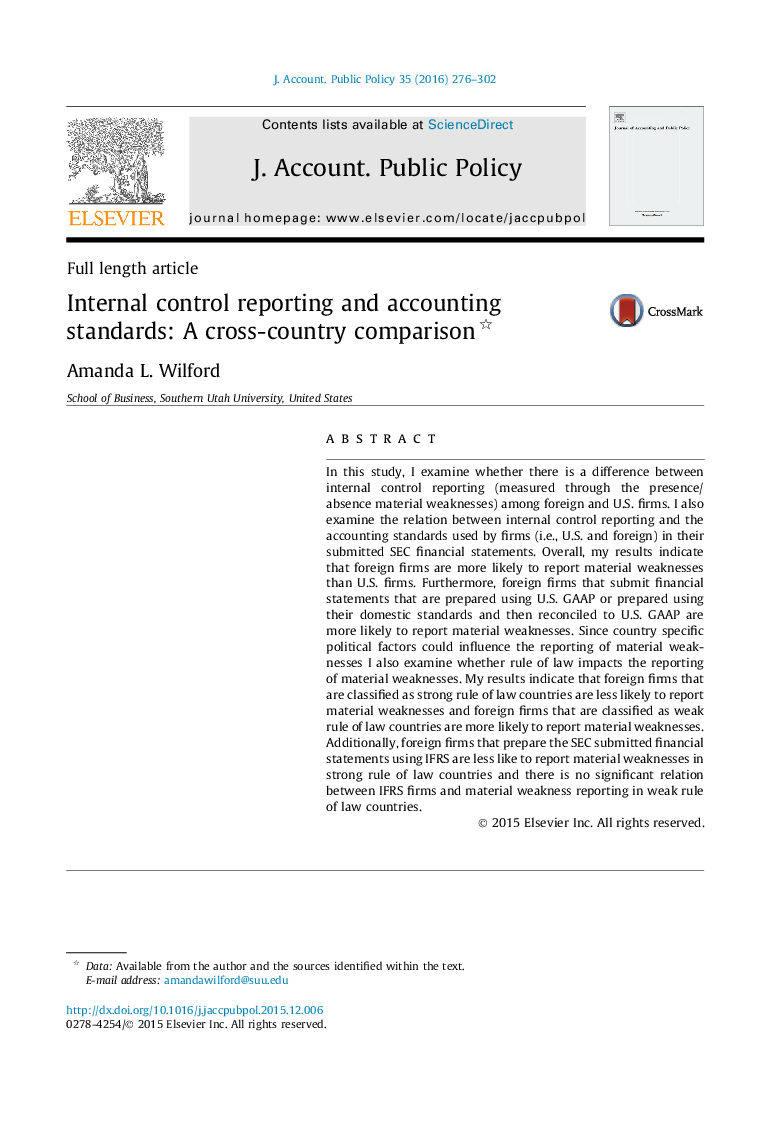| کد مقاله | کد نشریه | سال انتشار | مقاله انگلیسی | نسخه تمام متن |
|---|---|---|---|---|
| 1005730 | 938071 | 2016 | 27 صفحه PDF | دانلود رایگان |
In this study, I examine whether there is a difference between internal control reporting (measured through the presence/absence material weaknesses) among foreign and U.S. firms. I also examine the relation between internal control reporting and the accounting standards used by firms (i.e., U.S. and foreign) in their submitted SEC financial statements. Overall, my results indicate that foreign firms are more likely to report material weaknesses than U.S. firms. Furthermore, foreign firms that submit financial statements that are prepared using U.S. GAAP or prepared using their domestic standards and then reconciled to U.S. GAAP are more likely to report material weaknesses. Since country specific political factors could influence the reporting of material weaknesses I also examine whether rule of law impacts the reporting of material weaknesses. My results indicate that foreign firms that are classified as strong rule of law countries are less likely to report material weaknesses and foreign firms that are classified as weak rule of law countries are more likely to report material weaknesses. Additionally, foreign firms that prepare the SEC submitted financial statements using IFRS are less like to report material weaknesses in strong rule of law countries and there is no significant relation between IFRS firms and material weakness reporting in weak rule of law countries.
Journal: Journal of Accounting and Public Policy - Volume 35, Issue 3, May–June 2016, Pages 276–302
